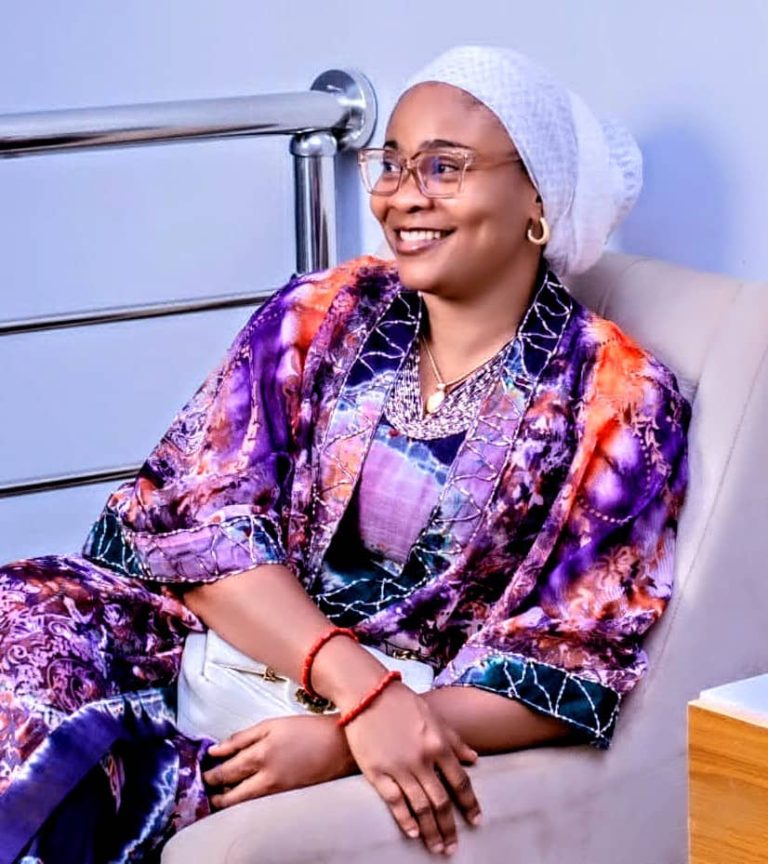Marriage: Yesterday, Today, and Tomorrow. By Falilat Oreoluwa Dikko

Marriage: Yesterday, Today, and Tomorrow
 Marriage has always been described as one of the most beautiful unions ordained by God, and rightly so. It is not merely a contract sealed by signatures, nor is it just a ceremonial exchange of vows; it is a covenant—of love, trust, and companionship. Across cultures, religions, and traditions, marriage has stood as both the backbone of family and the foundation of society. Yet, as we journey from the marriages of the past to those of today, and imagine those of the future, one truth remains constant: marriage is a lifelong journey, not a final destination.
Marriage has always been described as one of the most beautiful unions ordained by God, and rightly so. It is not merely a contract sealed by signatures, nor is it just a ceremonial exchange of vows; it is a covenant—of love, trust, and companionship. Across cultures, religions, and traditions, marriage has stood as both the backbone of family and the foundation of society. Yet, as we journey from the marriages of the past to those of today, and imagine those of the future, one truth remains constant: marriage is a lifelong journey, not a final destination.
In the Nigeria of old, marriage was never a purely personal affair, it was a community project. Families were involved in matchmaking, ensuring that the union preserved lineage, culture, and honour. A man’s wealth was measured not just by his farm produce or cattle, but by his ability to provide for a wife and children. Women were treasured as homemakers and nurturers, their roles clearly defined, their loyalty unquestionable. Divorce was rare, partly due to cultural stigma, partly because of communal pressure, and partly because couples were taught to endure storms rather than abandon the ship.
In Nigeria and many parts of world, the past was no different. Marriage was seen as both a social contract and an economic alliance. Dowries, inheritance, and land ownership often dictated unions more than romantic love. “Till death do us part” was not simply a phrase—it was a creed. Divorce was virtually unthinkable, legally cumbersome, and socially frowned upon.

But endurance came with a price. Domestic violence, infertility, or lack of affection were often swept under the carpet. Women endured silently, men bore their frustrations in pride, and communities looked away. What marriage had in stability, it sometimes lacked in openness.
Fast forward to today, and the landscape has changed drastically. Love is now the most celebrated reason for marriage. Couples choose each other freely, often without family interference. Women are no longer confined to the kitchen; they are engineers, pilots, professors, entrepreneurs—balancing home and career. Men, too, are learning to embrace housework and fatherhood as active responsibilities. On the surface, this looks like progress—and indeed, it is.
Yet, the modern marriage faces battles of its own. Divorce rates have soared. According to the United Nations, one in three marriages globally ends in divorce, with Africa and Europe recording steady increases. In Nigeria, data from Lagos State High Court in 2023 revealed that divorce petitions rose by nearly 15% in a single year. In Britain, the Office for National Statistics (ONS) shows that 42% of marriages end in divorce.

Why? Several reasons:
Domestic violence: A plague that continues to haunt homes. In Nigeria, the National Demographic and Health Survey reports that one in three women has experienced spousal violence. In Britain, one in four women and one in six men report domestic abuse at some point in their lives.
Infertility and DNA battles: The inability to conceive has torn many unions apart, especially in Africa where children are seen as proof of marriage. Advances in DNA technology have exposed cases of paternity fraud, sparking trust crises in homes.
Ego and equality: The modern quest for gender equality, though noble, sometimes slides into ego clashes. When respect and understanding are missing, marriage becomes a battlefield of “Who is superior?” rather than a partnership.
Lack of respect and poor communication: As the old saying goes, “A house divided against itself cannot stand.” Many modern marriages collapse, not because love died, but because communication broke down.
What does the future hold for marriage? Already, technology is reshaping it. Online dating apps and social media platforms have become the new matchmakers. Virtual weddings are no longer fiction. Artificial intelligence is beginning to influence how couples interact, and fertility technology offers hope to childless couples.
But with these advancements come risks. Will technology make marriage more superficial? Will commitment fade in a world of endless options? Or will couples find new ways to deepen love, combining tradition with innovation?
There is also the growing debate on what marriage itself means. In many Western countries, same-sex marriage is legal. In Africa, it remains largely forbidden, with cultural and religious institutions holding firmly to traditional definitions. The future of marriage, therefore, will not just be about couples—it will be about societies wrestling with values, beliefs, and modernity.
To ignore the challenges of marriage is to bury our heads in the sand. Divorce, infertility, domestic violence, and ego wars are not isolated cases—they are real storms that can sink the ship of marriage if left unchecked. But to ignore the beauty of marriage is also unfair. Countless couples continue to prove that love is still alive, that respect is possible, and that forgiveness can heal wounds.
As Mahatma Gandhi once said, “Where there is love, there is life.” And in the words of Chinua Achebe, “A man who pays respect to the great paves the way for his own greatness.” In marriage, respect is not optional—it is foundational.
Global divorce rates: Around 33% (UN, 2023).
UK divorce rate: 42% (ONS).
Nigeria divorce petitions: Increasing by 10–15% yearly in major cities (Lagos State Judiciary, 2023).
Domestic violence: 1 in 3 Nigerian women report abuse; 1 in 4 UK women report the same.
Infertility: WHO estimates 1 in 6 couples worldwide struggle with infertility.
Conclusion: A Journey, Not a Destination
Marriage is like a river: sometimes calm, sometimes turbulent, always moving. The marriages of yesterday emphasised endurance, today’s marriages emphasise freedom, and the marriages of tomorrow will likely be shaped by technology and redefined roles.
But one truth remains eternal: a successful marriage is not about perfection. It is about two imperfect people choosing, daily, to love, forgive, and grow together.
Let us remember the timeless words:
Love is the foundation.
Respect is the pillar.
Communication is the key.
When these three are present, a marriage whether in Nigeria or abroad can weather storms and bask in sunshine. As the Yoruba say, “Ti ọkọ ba n j’ayọ, iyawo naa a j’ayọ; ibi tí ọkọ bá jókòó, iyawo naa a jókòó.” (When the husband eats joy, the wife also eats joy; where the husband sits, the wife sits too.)
The future of marriage will not be defined by the challenges it faces, but by the courage of couples to rise above them. For marriage is, and will always be, one of humanity’s most sacred journeys.




